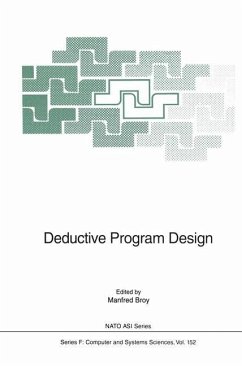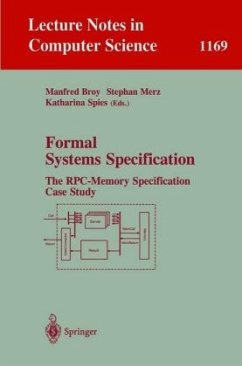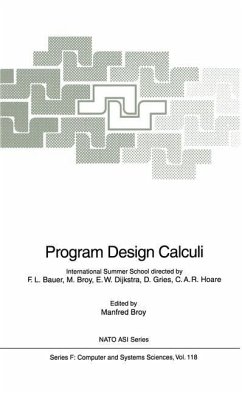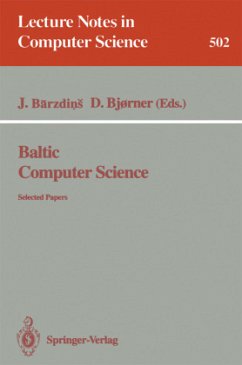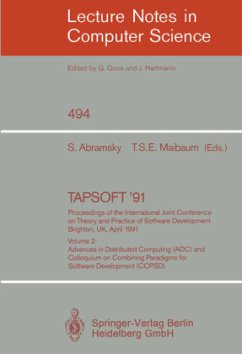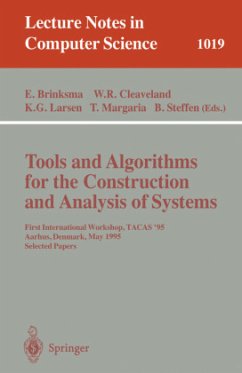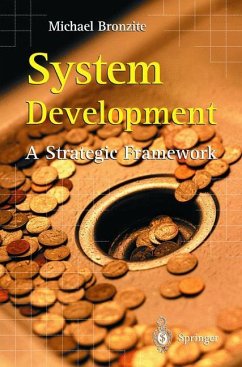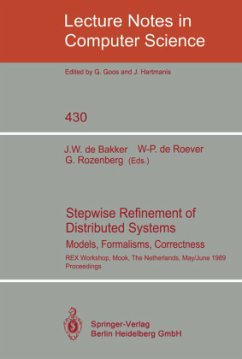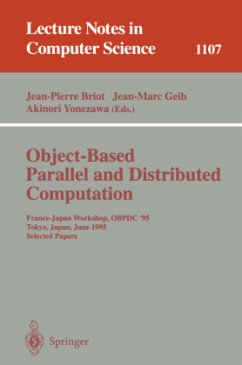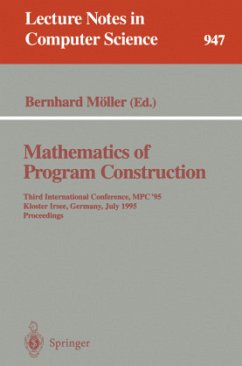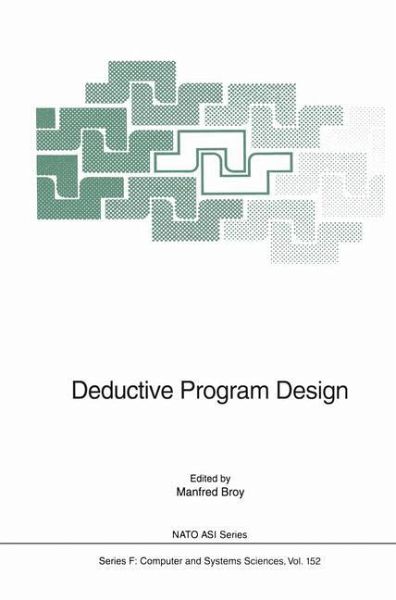
Deductive Program Design
Versandkostenfrei!
Versandfertig in 1-2 Wochen
153,99 €
inkl. MwSt.

PAYBACK Punkte
77 °P sammeln!
This volume presents some of the most advanced research in the description of distributed systems and the design calculi of software and of hardware using functional, algebraic, logical, and programming calculi. The deductive treatment of distributed systems is presented in its complete spectrum from formal foundations and functional system specifications to assertion calculi for the verification of system programs. A highlight is the use of model checking techniques for proving properties about finite state automaton systems with extremely large state sets. It is also shown how the formalisms can be used to treat hardware systems, with emphasis on development steps leading from high-level abstractions to concrete representations. An important notion treated is that of refinement concepts in system development.
Deductive program design aims at methods that guide and support the development of programs by techniques of deduction. Deduction is a well-known subject of study in logical theories. However, the application of deductive techniques in program design needs methods, heuristics, and understanding of the required forms and formats of the development result that go far beyond those found in logical theories. The summer school presents a very broad spectrum of approaches to these issues. Edsger W. Dijkstra gives a number of beautiful examples that show how to design proofs. Samson Abramsky, Simon Gay, and Rajagopal Nagarajan contribute a fundamental study founding concurrent programming on interaction categories and foundations of type theory. Tony Hoare presents unifying views on mathematical models for computing science. Unifying theories are especially important if the whole development process of programs is to be supported by deductive techniques. The rest of the contributions address applications of deductive program design methods. They are directed to different areas of application; for example Richard Bird's and Oege de Moor's algebra of programming is mainly intended for classical functional programming, and the contribution on data refinement and their transformation by David Gries considers sequential procedural programs.





